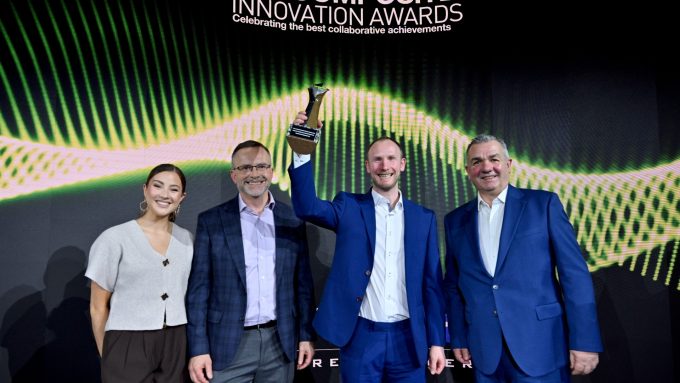
Winners announced for the inaugural Security Technology Research and Innovation Grants

We are pleased to announce the winners of The Security Technology Research and Innovation Grants Programme (S-TRIG), which is run in partnership by the Department for Transport’s (DfT) Future Aviation Security Solutions (FASS) Team and the Connected Places Catapult.

The programme is designed to enable small businesses and universities to undertake early stage research, development, and feasibility studies. As an enabling fund, S-TRIG is the beginning of a journey, leading the way for the future commercialisation of resulting technologies that could help to transform essential security services in the UK. This Security Technology Research is a vital part of the UK's strategy in security in the 21st Century.
A total of eighteen projects (listed below) from 13 organisations were successful in securing up to £30,000 to further research and technological development.
- Camor Ltd – Online Immersive Platform for the Provision of Security Training
- Cranfield University – Drone Classification for Airport Protection: Explainable Deep Learning to Identify Missing Training Data for Improved Accuracy
- Cranfield University – Academic Research and Evaluation Network Networked Area (ARENA)
- Createc Ltd – Improving Aviation Security at Airports by Integrating Multi-modal Crowd Observation Technologies
- Durham University – Tracking Drones Across Different Platforms with Machine Vision Using Deep Learning Enabled Multi-view X-ray (TEC-DLEMX)
- Dynamical Systems Research – Drone Detect
- Halo X-ray Technologies – Scatter Enhanced Explosive Detection (SEED)
- Iconal Technology – Gait analysis for identification of anomalous carried bags
- Iconal Technology – Multi-sensor approach for rapid non-contact contraband screening
- Iconal Technology – Development of Home-made Explosive Simulants
- Metrasens Ltd – Invisible magnetic profiling of free-flowing crowded areas for detecting mass casualty weapons
- Overview Ltd – Next generation laser-light to counter airborne (UAS) and ground threats against critical infrastructure
- Rinicom Intelligent Solutions Ltd – AI-enhanced optical system for detection, tracking and classification of drone payloads (DRONEALARM)
- Rinicom Ltd – ARTIFACT
- Synbiosys Ltd – Futureproofed, high speed C-UAV ballistic net
- University of Strathclyde – Drone Classification Range Extension using AI
- University of the West of Scotland – Development of a novel wide-angle Compton camera for the real-time detection of radioactive sources
Rebecca Goulding, S-TRIG Lead, at Connected Places Catapult said:
“The Catapult is delighted to be delivering this very important programme on behalf of the FASS Team at the DfT. S-TRIG has been designed to bolster research and development activity for small businesses and universities, while encouraging collaboration and supporting the journey to commercialisation. We have chosen a great list of projects that will develop cutting-edge technology to; aid safe and secure air travel, counter the unsafe use of drones, prevent contraband entering prisons, help secure our borders and protect national infrastructure. A showcase event in April 2021 will give the organisations the opportunity to highlight their achievements and associated impact and crucially, form new industry connections to further accelerate their technology.”
The projects began in December and findings will be presented to the DfT and its partners at a showcase event in April 2021. To view full details of the S-TRIG cohort for 2020/21, see below in the cohort brochure.





